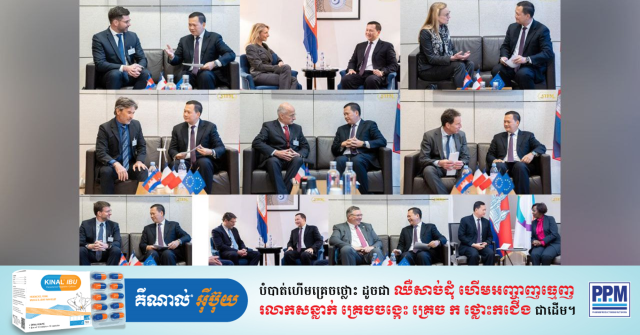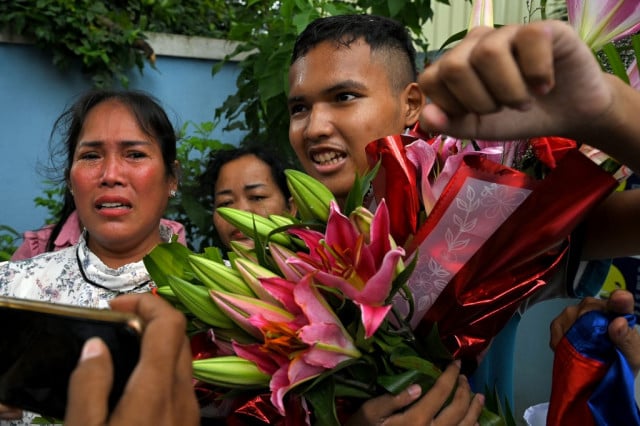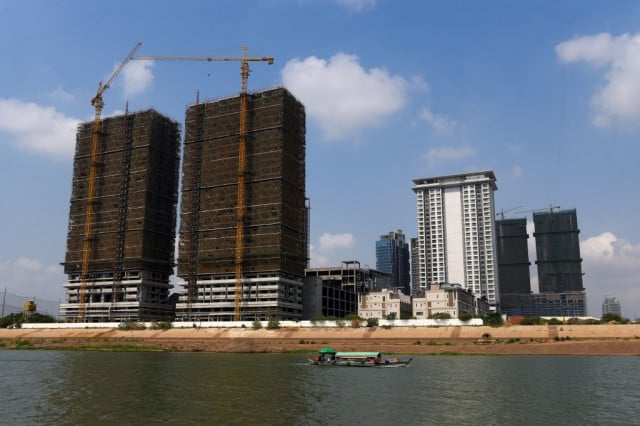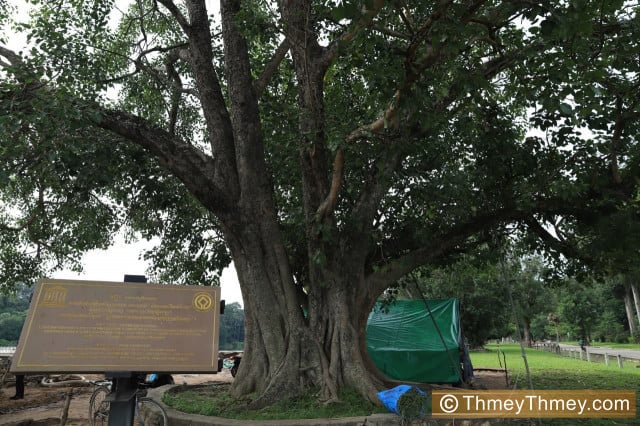PM Knocks on Investors’ Door in France

- By Meng Seavmey
- January 16, 2024 7:10 PM
PHNOM PENH – Prime Minister Hun Manet met with several French business representatives on Jan. 15, with several business projects being announced, before departing for Switzerland where he is attending the World Economic Forum on Jan. 16 and 17.
On his first day of a week-long trip to Western Europe, Cambodia’s Premier was invited to a France-Cambodia business forum which was attended by around 80 French companies. He then had meetings with the CEOs of several French corporations from many sectors, ranging from the environment, infrastructure, construction and renewable energies.
His trip will end on Jan. 19, after a two-day official visit to the Elysée Palace, at the invitation of French President Emmanuel Macron.
While some of these companies – like Vinci or Accor Group – are already present in Cambodia and have expressed the desire to expand their operations, new corporations expressed their will to set foot in the country.
One of these is the “Immersive Angkor” project which will be the first visual museum in Cambodia. The project, which is set to kick off soon, will scan some of Cambodia’s heritage sites and display them in a 3D immersive experience.
The invention comes from the Puy Du Fou company – which runs several amusement parks in Western Europe – and will be implemented in Cambodia through Cambodia’s Confluences, a business facilitator based in Phnom Penh.
Six Memorandums of Understanding (MoUs) were signed on that day: Between the Cambodia Chamber of Commerce and the Assemblée Parlementaire de la Francophonie (APF), the Royal Group and Blue Circle (renewable energies), the Overseas Cambodia Investment Corporation (OCIC) and the Lagardere Travel Retail (Retail), OCIC and the Platform Impact (a business incubator), and the L.Y.P Group and the SEMMARIS group (which runs the Rungis International Market, France’s largest agricultural produce market).
Cambodia’s strategic place in Southeast Asia
Hun Manet took the opportunity of these meetings to praise Cambodia’s potential for foreign investors.
“Firstly, Cambodia is protecting peace and stability which is a core value of the country for long-term business operation environment,” Manet said.
He also stressed that Cambodia is at the geographic center of Southeast Asia, which offers a strategic point of entry to many regional markets, and is a signatory of many Free Trade Agreements.
“This offers investors with diverse markets, incentives, and other business development possibilities,” he said.
The investors, he continued, can catch more opportunities in a few potential markets, including those in the Mekong subregions with more than 300 million people, the Association of Southeast Asian Nations (ASEAN) with around 660 million people, and the Regional Comprehensive Economic Partnership (RCEP) with 2.3 billion people and $25.8 trillion worth of Gross Domestic Products.
The country has Free Trade Agreements with China, and South Korea, and is also a comprehensive strategic partner of the United Arab Emirates, the prime minister added.
While Cambodia has been deemed as carrying the strongest momentum for Foreign Direct Investments (FDIs) in 2024, particularly thanks to a recent law granting tax incentives to foreign investors, it has many challenges to meet to compete with its neighbors.
In addition to having a fairly small national market compared to that of Vietnam and Thailand, it lacks proper transport infrastructure and an improved business environment.
“Taxes are one of the main issues regularly raised by the French business community in Cambodia,” pointed out French Ambassador Jacques Pellet in a press conference on Jan. 15.
Close relation despite the far distance
While France and Cambodia are geographically far, Manet stressed the many ties that unite the two countries.
“Both have been historically connected for a long time in many aspects such as financing, architecture, culture, food, language, administrative system, and the French laws in Cambodian society,” the prime minister said.
Manet thinks of France as one of the major development partners, who has been contributing to Cambodia’s economic success through assistance and investment in agriculture, food processing, electricity and electronics, renewable energy, healthcare, education, and information technology sectors.
However, private investments from the former colonizer remain low. In 2022, French foreign direct investments (FDI) reached around $26.3 million, representing only 0.5 percent of the $4.7 billion invested in the country in the form of FDI that year, far behind China, South Korea and ASEAN member states.
Bilateral trade between the two countries reached $1.25 billion in the first ten months of 2023, down 2 percent over the same period the year before.















